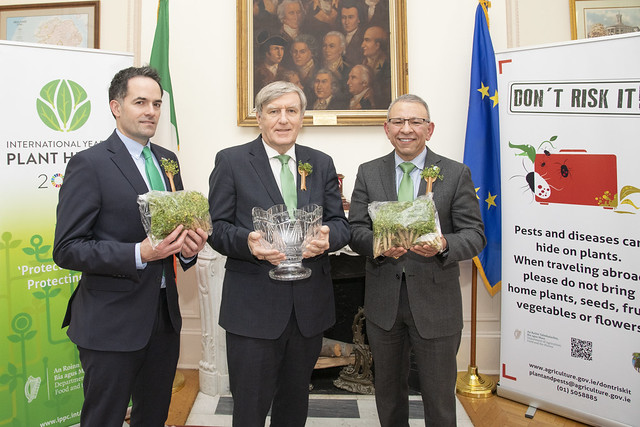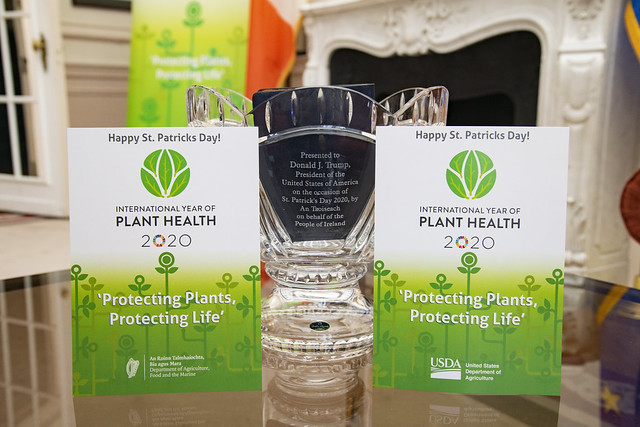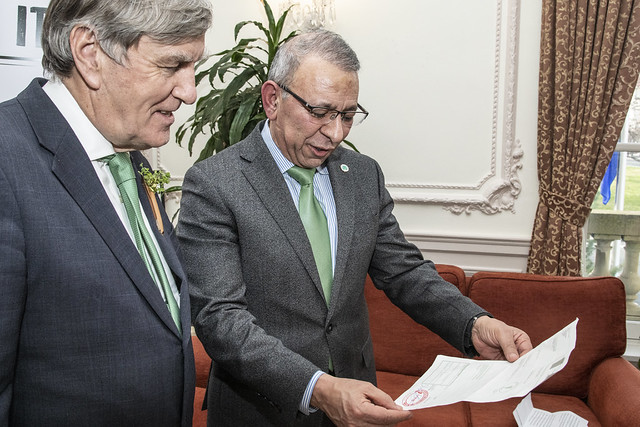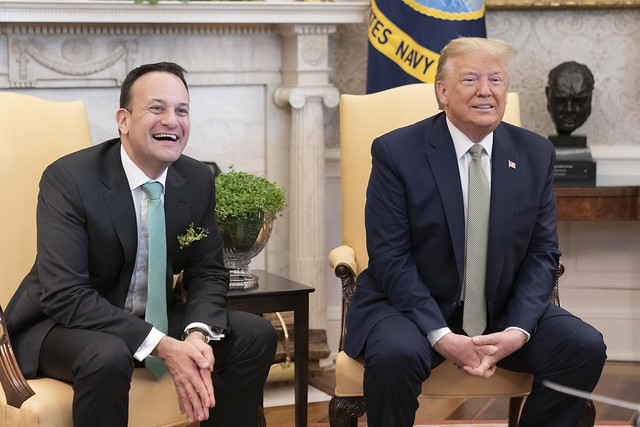
Plants can serve as a profound symbol of friendship, especially when they cross an ocean to help two nations strengthen their bonds. I witnessed this firsthand on March 9, when I visited the Irish Embassy in Washington, D.C., joining Irish Ambassador to the United States Daniel Mulhall as he received a shipment of Ireland’s iconic shamrock plants. Embassy staff later arranged those shamrocks in an elegant, engraved crystal bowl for Irish Prime Minister Leo Varadkar to present to President Trump as a St. Patrick’s Day gift. That token of goodwill continued an annual tradition spanning 50 years.

As Deputy Administrator of USDA’s Plant Protection and Quarantine program, my line of work is plant health protection. I was invited to the embassy to not only witness the arrival of the shamrocks, but more importantly, to affirm the United States and Ireland’s commitment to protecting plant health. The United Nations declared 2020 the International Year of Plant Health, and Ambassador Mulhall and I took this opportunity to highlight the fact that the international trade of plants like the shamrocks are safe, thanks to international standards that prevent the global spread of damaging invasive plant pests and diseases.
Ambassador Mulhall and I understand only too well why the United Nations declared 2020 the International Year of Plant Health. It is bringing worldwide attention to the devastating impact invasive pests and diseases have on agriculture, livelihoods, and food security. These pests destroy up to 40 percent of food crops worldwide and cause $220 billion in trade losses annually. They can harm ecosystems and biodiversity. That’s why USDA works so hard to defend our country against invasive plant pests and diseases, and to make global agricultural trade safe, fair, and predictable.

He and I reviewed the plant health—or phytosanitary—certificate that Ireland’s national plant protection organization issued for the shamrock plants. The certificate attests that they meet USDA’s import requirements. Without it, the U.S. Department of Homeland Security’s Customs and Border Protection would not have allowed the plants into our country. This certificate is a powerful assurance that the shamrock plants pose a minimal pest risk. They arrived sealed in clear bags, and their roots were free of soil or any other growing media that could harbor invasive pests. They were ready, and legal, to grace the White House with their beauty and symbolism.
The ambassador and I were eager to showcase this example of international cooperation and plant health safeguarding for the International Year of Plant Health. The fact is, we all have a role in preventing the spread of invasive pests. Make 2020 the year you empower yourself with the knowledge to protect America’s farms, forests, and ecosystems. To learn how, visit HungryPests.com, USDA’s signature outreach program on invasive pests. If every person in every nation committed to protecting his or her own community’s plants, then together we would safeguard plant health worldwide.

